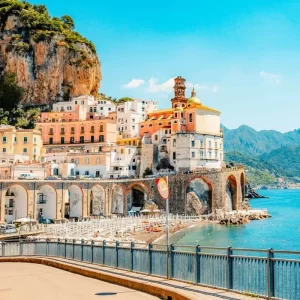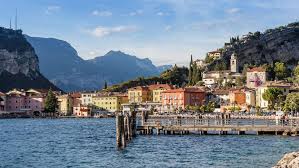Italy, Türkiye set the stage for Mediterranean power partnership

Rome: The expectations toward the 4th Italy-Türkiye intergovernmental summit were very high: they were firmly confirmed by marking an unprecedented success.
The meeting between President Recep Tayyip Erdoğan and Italian Prime Minister Giorgia Meloni took place under the best auspices in a climate of cordiality that honored the historic friendship and alliance between the two countries.
Many political and diplomatic dossiers were on the table: from the Russian-Ukrainian conflict, to the Middle East and Africa, the two leaders had no difficulty in signing joint actions and issuing joint statement on the stabilization of Libya, the guarantee of Syria’s territorial integrity, and on the absolute need for a long-term and sustainable cease-fire in Gaza.
On her side, Giorgia Meloni thanked President Erdoğan for Türkiye’s efforts in combating irregular immigration toward Europe. Türkiye and Italy, therefore, have raised their dialogue to a new level, pivoting on the common need to ensure security and stability in the Mediterranean, understood as a basin of their historical belonging, where, traditionally for centuries, the two countries have largely contributed to regional development and dynamics. And it is precisely in the Euro-Mediterranean area that Italy and Türkiye play a leading role in connectivity, security and integration, thanks to the important synergies binding the two countries. Their mutual global aspirations define a new geopolitical trajectory designed to unite the South of the World with far eastern Asia throughout the Mediterranean. Under this vision, the Italy-Türkiye axis, which is strengthening over time, will fundamentally impact regional integration by enforcing the respective production chains and therefore containing the risks and challenges related to the volatility of the current global context.
As a matter of fact, besides the traditional mutual understanding, the backbone of Italy-Türkiye’s growing synergy is related to economic and trade factors. The bilateral exchange has grown by over 60% since pre-pandemic times, substantially increasing in recent years. From $19 billion in 2019, it stood at $26 billion in 2024, reaching $32 billion in 2024. Hence, leveraging on the incredible dynamism of Italian-Turkish business and the perfect complementarity of their respective industrial sectors, in Rome, the two leaders signed a joint declaration aimed at raising the bilateral trade to $40 billion in the medium term. This ambition shows the increasing solidity of the Italian-Turkish complementarities, which is also proven by the over 10 agreements signed in different fields during the summit.
The entrepreneurial and economic sector plays a primary role in research and development (R&D), technologies, sustainable energy, circular economy, infrastructure, manufacturing and innovation. Moreover, many other MoUs have been finalized on family and social affairs, tourism, culture, sports and people-to-people diplomacy. In this regard, the decision to jointly host the Euroleague in 2032 stands out.
However, the real highlight of the Summit was the Leonardo-Baykar joint venture, which raised great enthusiasm on both sides. With the aim of penetrating the European market for a value of $10 billion, for the first time in history, Baykar products will be produced in Italy and integrated with Leonardo’s radar and technological systems.
A move with a strategic implication that outlines a new Italian-Turkish approach in terms of defense and security and it opens the doors to the integration of Turkish products in Europe, a region where the partnership signs important figures. There, Italy stands out as Türkiye’s second commercial partner, while Rome is Ankara’s first partner in the Mediterranean. It is in the Euro Mediterranean region that Italy and Türkiye, as NATO members, share the responsibility of the security of the eastern flank of the Alliance. The developments must also be read within respective regulatory commitments aimed at facilitating trade and integration. In this regard, Italy is committed to easing the EU visa liberalization process for Turkish citizens and to supporting the modernization of the EU-Türkiye Customs Union.
Above all, the growing ties between Italy and Türkiye have extended to other chessboards where both Rome and Ankara are strategically engaged. Africa stands as the main area of interest, where the joint commitment would contribute to the infrastructural, economic and human development of the continent. The postwar reconstruction of Syria and Ukraine also falls within this spirit. The Italian-Turkish partnership, therefore, has a strategic connotation that reflects a clear vision of looking to the future according to a sustainability perspective and on the basis of a win-win principle.
There is no doubt that Ankara is recognized for its strategic and balancing role and mediation. On this, Giorgia Meloni explicitly thanked Erdoğan. The feeling of mutual appreciation was also evident from the words of the Turkish president, who defined the counterpart as “courageous” for having contributed to strengthening the relations. Nevertheless, their regular contacts confirm the leaders’ solid relations: in Rome, they sealed their 10th meeting. This friendship is very valuable, and it is put into practice by the contribution of entrepreneurs’ pragmatism, citizens’ mutual sympathy, and the incessant diplomatic action of Rome and Ankara.





